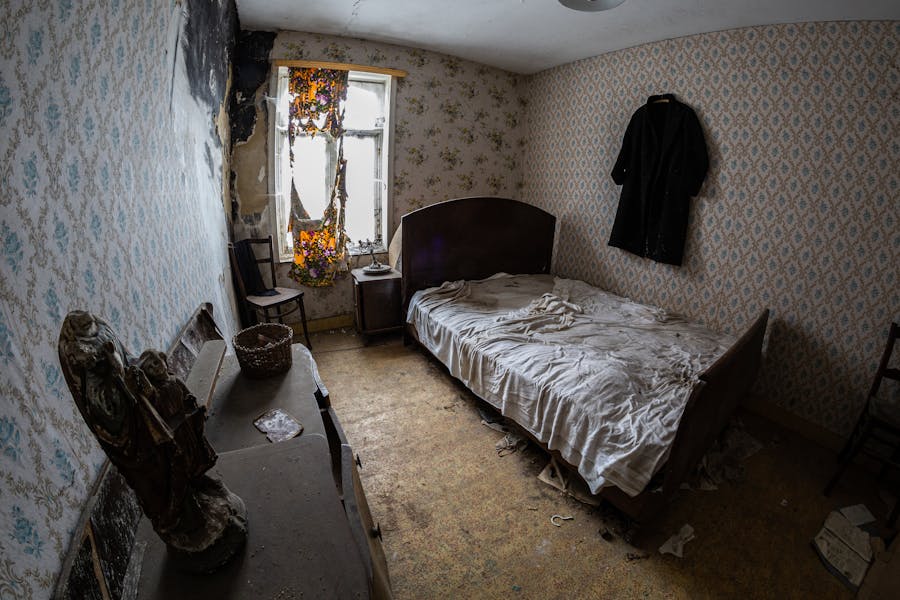Every tenant has the right to a safe and habitable living environment. However, many renters find themselves in dangerous housing conditions due to landlord neglect, poor maintenance, or outright refusal to make necessary repairs. When these issues put tenants’ health and safety at risk, legal intervention may be necessary. This is where Castelblanco Slumlord Lawyers can provide crucial assistance, ensuring that tenants receive the protection they deserve under the law.
Understanding Unsafe Living Conditions
Unsafe housing conditions can take many forms, often stemming from structural problems, lack of essential utilities, or hazardous environments. Some of the most common issues include:
Mold and Water Damage –
Persistent leaks and untreated water damage can lead to mold growth, which can cause respiratory problems and other health issues.
Lack of Heat or Hot Water –
Inadequate heating during colder months or the absence of hot water is a direct violation of tenant rights.
Electrical and Fire Hazards –
Exposed wiring, faulty outlets, and outdated electrical systems pose serious fire risks.
Pest Infestations –
Roaches, rodents, and bedbugs can spread disease and create an unlivable environment.
Structural Instability –
Cracks in walls, a sagging ceiling, or weak flooring can result in dangerous collapses.
Broken Locks and Security Issues –
A landlord’s failure to provide secure doors and windows can leave tenants vulnerable to crime.
Toxic Substances –
Exposure to lead paint, asbestos, or carbon monoxide due to poor maintenance can have severe health consequences.
When landlords fail to address these hazards despite repeated complaints, tenants may have grounds for legal action.
Tenant Rights and Landlord Responsibilities
Landlords have a legal obligation to maintain their rental properties in a habitable condition. This includes:
Ensuring that plumbing, heating, and electrical systems are functioning properly.
Addressing pest infestations and mold problems.
Repairing any structural damage that could pose a safety risk.
Complying with local building codes and health regulations.
Failure to meet these responsibilities can constitute negligence, making landlords legally accountable for any harm their tenants suffer.
Signs That Legal Action May Be Necessary
Not all housing issues require immediate legal intervention, but there are clear signs that a lawyer may be needed:
The landlord ignores repeated requests for essential repairs.
The property poses a direct threat to health and safety.
Attempts to withhold rent in protest lead to eviction threats.
Retaliation occurs after a tenant reports violations to authorities.
The landlord refuses to comply with city housing inspections.
In these cases, tenants should seek legal guidance to explore their options and protect their rights.
How a Lawyer Can Help
A tenant rights lawyer can be instrumental in resolving disputes and holding landlords accountable. Legal professionals can:
Send Formal Notices –
A lawyer can draft legal notices demanding necessary repairs and warning of potential lawsuits if the landlord remains unresponsive.
File Complaints with Housing Authorities –
Attorneys can assist tenants in filing official complaints with local or state agencies to force landlord compliance.
Pursue Compensation for Damages –
If unsafe conditions have led to illness, injury, or property damage, legal action can help tenants recover financial compensation.
Prevent Retaliatory Evictions –
Some landlords attempt to evict tenants who demand repairs. A lawyer can challenge unlawful eviction attempts in court.
Negotiate Lease Termination –
If conditions are unbearable, an attorney can help tenants break their lease without financial penalties.
Steps Tenants Should Take Before Contacting a Lawyer
Tenants facing unsafe conditions should take proactive measures to strengthen their case:
Document the Issues –
Take photos and videos of the hazardous conditions, keeping a detailed record of all incidents.
Report Problems in Writing –
Always communicate with the landlord in writing, keeping copies of all requests for repairs.
Contact Local Authorities –
If the landlord refuses to act, tenants can report the issue to a housing inspector or health department.
Gather Medical Records –
If poor conditions have led to illness or injury, keeping medical records can help establish a legal claim.
If the landlord still refuses to make repairs or retaliates against the tenant, legal representation becomes essential.
Conclusion
No one should have to live in unsafe conditions due to landlord neglect. When a rental property becomes hazardous to health and safety, tenants have the right to demand action. If landlords ignore their responsibilities, legal intervention can help hold them accountable. Seeking the assistance of an experienced tenant rights lawyer can ensure that necessary repairs are made, compensation is secured, and retaliatory actions are prevented. By knowing their rights and taking the proper steps, tenants can protect themselves and secure the safe living environment they deserve.


